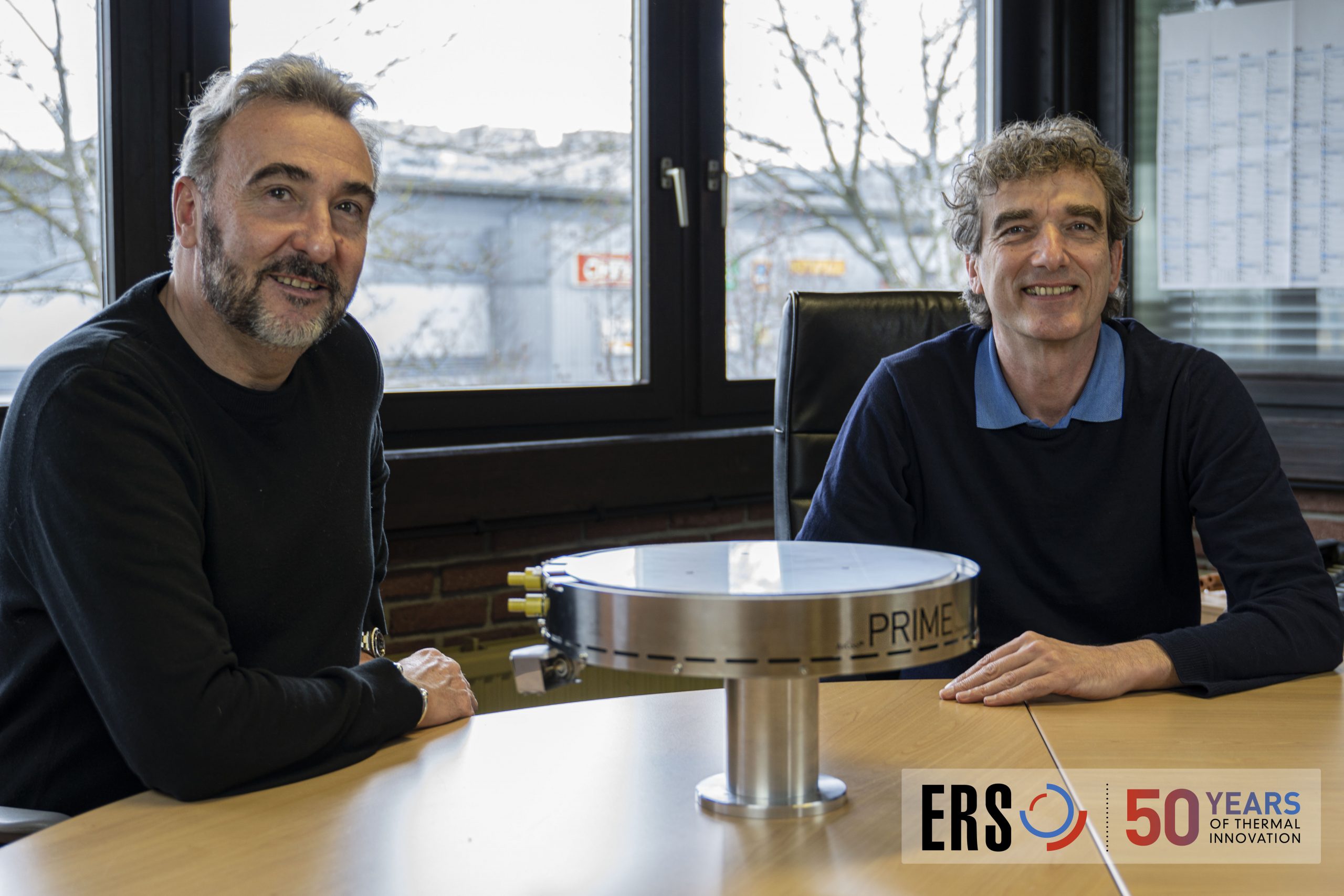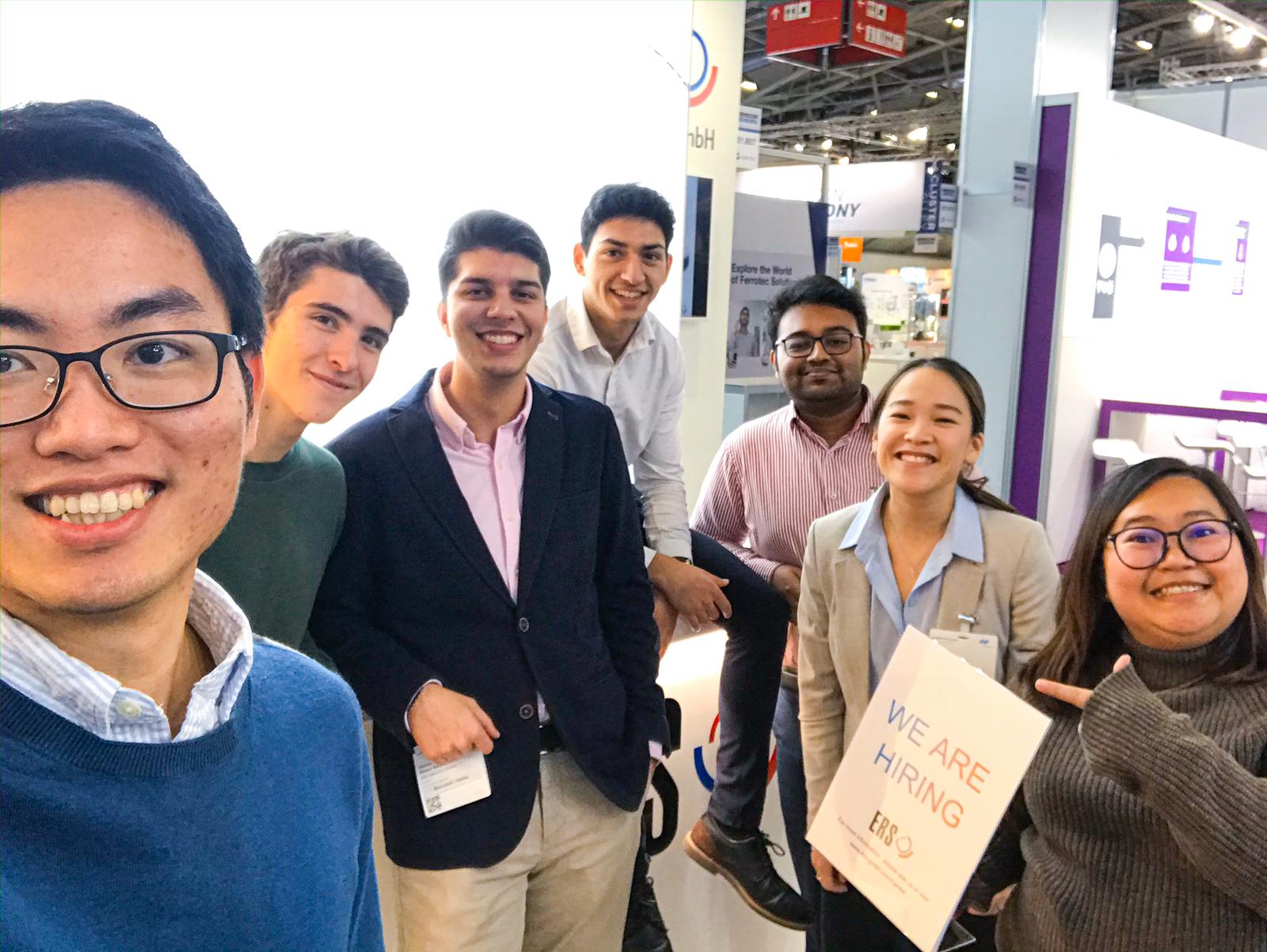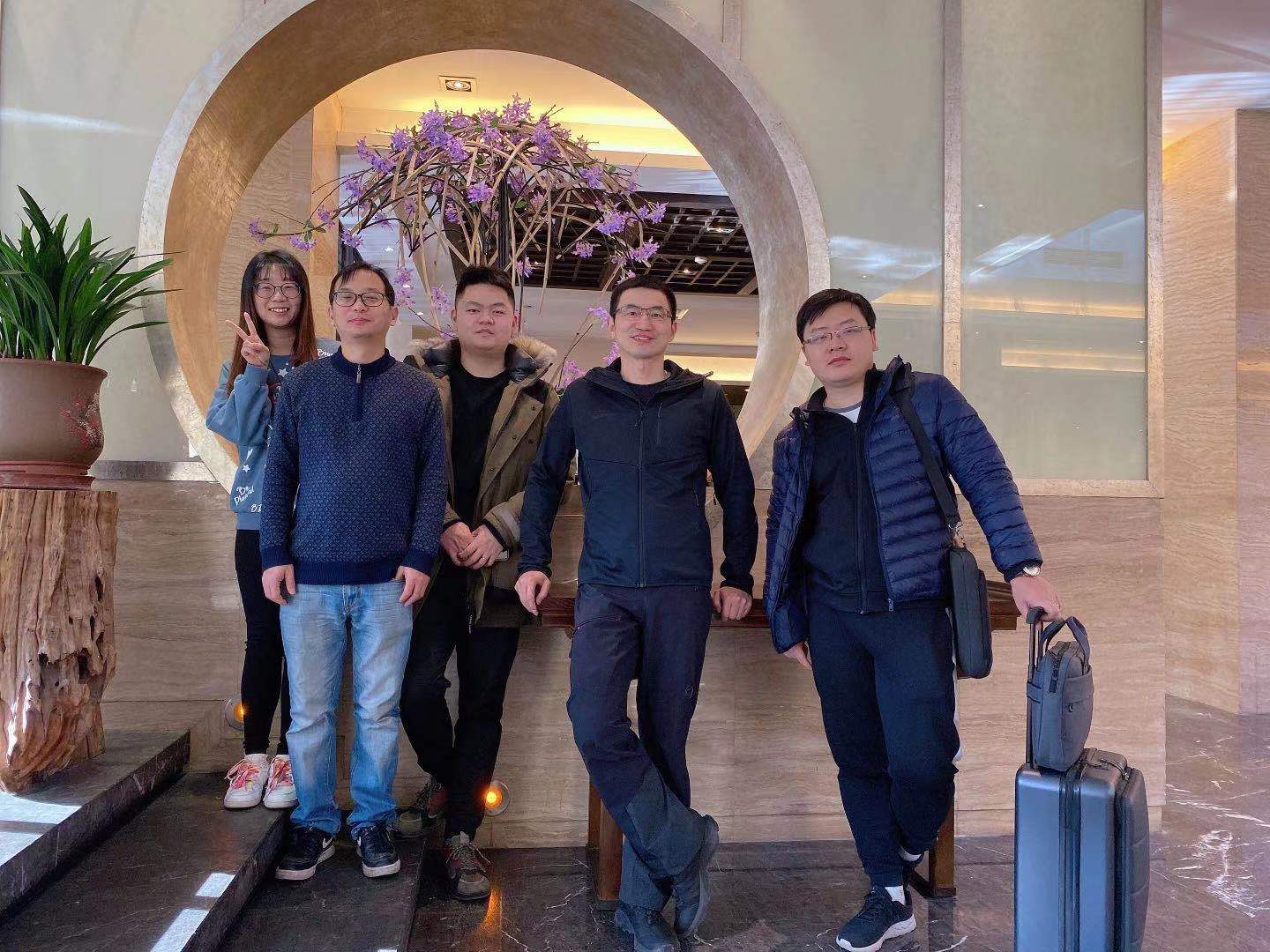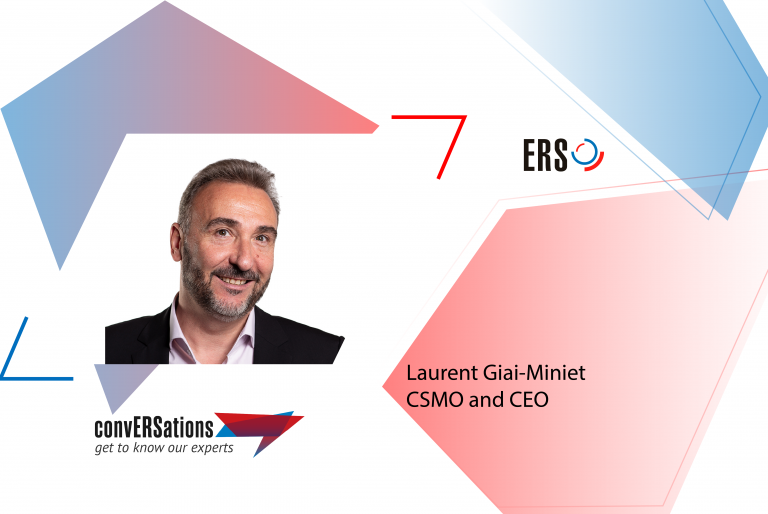Laurent first joined ERS in 2016 as a consultant in what was supposed to be a short-term engagement. However, he ended up joining the company as CSMO in 2017, and a year later he became co-CEO of the company. It’s been almost five years since he made the decision to stay with ERS permanently, so we asked him about the most important lessons he has learnt throughout his career, the highlights and challenges of the past half decade, and his ambitions for the years to come.
Q: Your involvement with ERS started in 2016 in a consultant role, but soon after, you joined permanently as the CSMO and co-CEO. What were your first impressions of ERS at the time, and what made you want to join the company full-time?
Laurent: When I started as a consultant for ERS in late 2016, I was amazed by its capacity to maintain technology leadership for 50 years, its great reputation and extremely high customer retention. When I was reporting back to the board of directors, I remember describing ERS as a “rough diamond”, as I realized the company had everything it needed to be successful but needed to focus more on scaling and expanding to other markets, especially China, to accelerate its growth. Starting from the first day at the company, I got along very well with Klemens [Reitinger, co-CEO and CTO], so I recommended that he hire someone to assist him with sales and marketing on an international scale and to help put ERS on a global growth trajectory. I honestly didn’t think it would be me, but Klemens asked, “why not you?” so I became the “assistant”. (laughs)

Q: You have experience working in both big corporations and start-up-like companies. What were some of the most valuable lessons you brought with you?
Laurent: Although there are differences between big corporations, start-ups, and SMEs, there are two common denominators, in my experience. First is the importance of people. Identifying, developing and retaining talents, recruiting those you are missing, basically, creating your team. Regardless of what size the company is, it always pays off to engage and empower your team to create a fantastic journey and together with them develop, what I would call, a customer obsession. This leads to the second denominator, which is strong customer focus. Both winning corporations and successful start-ups put their customer at the center, trying to understand the customer’s needs and their major pain points to solve.
Q: ERS has grown from being a local German company to having a large international presence, with sales offices in the US and China and partners worldwide. What is the story behind the rapid expansion over the past few years?
Laurent: ERS was already very well-known in Germany and Europe, and at the time we had a lot of business coming out of Dresden. However, as the semiconductor market landscape constantly changes and evolves, Klemens and I realized that we needed to start expanding. Therefore, when I was hired permanently as the CSMO, one of my first tasks was to start our business journey in China. Due to the complexities of the market and the cultural differences we knew we would encounter, we both agreed that it was best to establish a dedicated ERS team in China to offer local sales and technical support.
I’ve always believed in the importance of having your own people in the geography – if you want to capture a part of the market, you need to have your people there. People who understand the language, the culture, who can take customers out for dinner and can quickly offer support when issues arise. This is why we hired Joshua [Zhou, ERS Vice-President and Head of ERS Greater China], who is a Chinese native and lives in Shanghai, to build and lead our Chinese team and grow our business there. I think the past two years have shown us that we can’t take worldwide travel for granted, so having a local team has been more important and valuable than ever. Our team in Shanghai has done a great job so far finding new customers and identifying their specific needs, and as a result, we are now developing special Thermal solutions for several Chinese companies.
The same goes for our office in America. For a long time, we had someone flying in and out whenever there was an event or an important meeting. With Bernd, who is stationed in Dallas, we can respond to customer inquiries much faster.
And what are your plans for ERS’s further growth and scaling?
Laurent: We’re still a relatively small company, and with our steady increase of orders, we need to continue to add or refine processes to ensure that the quality of our deliveries remains stable. We must continue to identify the major challenges of our customers and find a way to address them with our thermal solutions. We have experienced amazing growth over the past couple of years, especially in China, so we need to scale our local support team, making sure that field support is easily available to all our customers. We need to continue to scale our FoWLP Advanced Packaging machine business and bring it to the level of our Thermal Chuck business.
Q: How do you see the semiconductor industry developing over the next five years? What opportunities and challenges do you foresee, and how will ERS address them?

Laurent: We may see a weaker year in the near future, but overall I’m sure that the semiconductor market will continue to experience solid growth over the next five years. We also see that wafer probing under temperature is becoming mainstream, whereas it was very niche when ERS first started in the 1970s. Probing in general, albeit in ambient temperature, is mainstream – all chips nowadays usually go through the wafer probing stage before they are encapsulated. With the importance of analog automotive, sensors, power ICs and new substrates like SiC and GaN, I can easily see wafer probing in temperature becoming standard. Customers rarely buy probers that aren’t “cold-ready”, and if they do, they usually call companies like ours to do the sealing and add the cold temperature element. I also strongly believe that the market for Advanced Packaging solutions will continue to grow. Based on the current demand, we are seeing Fan-out, eWLB, and other Advanced Packaging technologies entering a growth phase. Fan-out and System-in-package are great alternatives to the more expensive scaling down of the technology node, and we see several customers opting for the former.
What I believe could be a limitation over the next years is the available work force. It is much more challenging to recruit talents in a small company than for a large corporation. So we started our internship program in 2017 to identify young graduates or pre-graduates worldwide. We offer them a thorough introduction to the industry and our business, and if it works out for both of us, we then convert them to permanent hires after graduation. This approach has been an excellent way for us to recruit, and we continue to offer several internships every year.
We are also putting sustainability in focus in the foreseeable future. The topic of sustainability has gone from being “someone else’s problem” to our problem. Our industry is a big polluter, and although we are a small company, it doesn’t mean that we’re exempt from doing something about this issue. So, therefore, the leadership of ERS, with great support from our employees, has decided to take definitive action to become more sustainable, lower our footprint and offset emissions that we can’t reduce.
Q: We’re only a couple of weeks away from 2022, and you are now entering your fifth year as co-CEO and CSMO for ERS electronic. Looking back, which company achievements are you the proudest of?
Laurent: The success of ERS in China is one of the things I am very proud of. China has significantly increased its competitiveness in the assembly, testing, and packaging of electronics over the past two decades, making it an attractive market for equipment suppliers. As a thermal solution producer, ERS needs to be known as a reliable, cutting-edge technology provider and prove that we have the capacity to continuously innovate.
Our workforce has developed a lot throughout the years, not just with the addition of our colleagues in China, and we’ve become a more international and diverse team. Four years ago, you could count our different nationalities

on one hand; today I believe we have more than 20 nationalities in total.
What I’m also proud of is our growth. Since I joined ERS, we have doubled the company’s size and revenue. People have always known us as a Thermal Chuck manufacturer, but we have significantly expanded our Fan-out Equipment business unit in the past few years. Today, our Thermal Debonding and Warpage Adjust machines are popular with both OSATs and Advanced Packaging research laboratories.
Lastly, despite the challenging past two COVID years, we have experienced a compound annual growth rate of more than 20% across our Thermal Chuck System and Fan-out Equipment business from 2016 to 2022. This is a true testament to the resilience displayed by our fantastic team in a time of great uncertainty.
In conclusion, I am very happy that I decided to stay with ERS in 2017, and I can’t wait to continue our journey in 2022.

